Study in Switzerland. 132 best institutions in Switzerland
- Education information
- Key Features of Studying in Switzerland
- What languages do you need to know to study in Switzerland?
- Why Choose to Study Abroad in Switzerland?
- Cost and Fees to Study in Switzerland
- Best Programs to Study in Switzerland: Hospitality & Culinary Arts
- Understanding the Swiss Educational System
- Inclusive Education in Switzerland
- Literature and references
This content was developed with active participation of Alison Peacock.
In the process of preparing the material, we referenced the following sources:
- https://www.swissinfo.ch/eng/swiss-education-system---overview/29284412#:~:text=The%20majority%20of%20students%20in,kindergarten%20up%20to%20university%20age
- https://www.educationsuisse.ch/en/education-switzerland/swiss-educational-system.
-
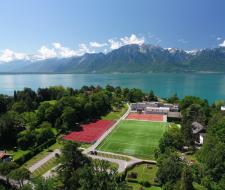 In 2023: 37 IB average, 43 highest point, 100% pass rate
In 2023: 37 IB average, 43 highest point, 100% pass rate SwitzerlandMontreuxCurrently watching: 7from 31010.00 CHF / yearApply with documents
SwitzerlandMontreuxCurrently watching: 7from 31010.00 CHF / yearApply with documents -
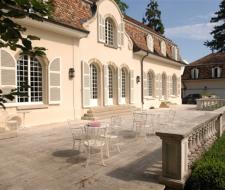 In 2023 100% graduates achieved IB Diploma
In 2023 100% graduates achieved IB Diploma SwitzerlandGenevaCurrently watching: 10from 27930.00 CHF / yearApply with documents
SwitzerlandGenevaCurrently watching: 10from 27930.00 CHF / yearApply with documents -
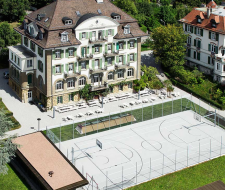 School is in top 3 best bilingual boarding schools in French speaking part of Switzerland
School is in top 3 best bilingual boarding schools in French speaking part of Switzerland SwitzerlandLausanneCurrently watching: 6from 81000.00 CHF / yearApply with documents
SwitzerlandLausanneCurrently watching: 6from 81000.00 CHF / yearApply with documents -
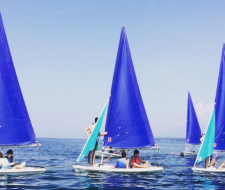 from 5700.00 CHF / 2 weeksApply with documents
from 5700.00 CHF / 2 weeksApply with documents -
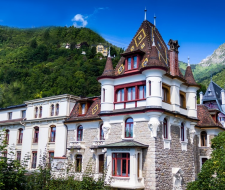 Family based atmosphere at school, study plan is tailored for each student individually
Family based atmosphere at school, study plan is tailored for each student individually SwitzerlandMontreuxCurrently watching: 9from 21000.00 CHF / termApply with documents
SwitzerlandMontreuxCurrently watching: 9from 21000.00 CHF / termApply with documents -
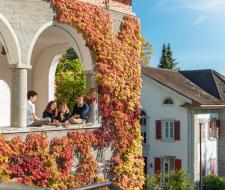 Accreditation: Swisslearning; SFPS; International Baccalaureate; ISO; AVEDP; BSA
Accreditation: Swisslearning; SFPS; International Baccalaureate; ISO; AVEDP; BSA SwitzerlandLausanneCurrently watching: 10from 12100.00 CHF / yearApply with documents
SwitzerlandLausanneCurrently watching: 10from 12100.00 CHF / yearApply with documents -
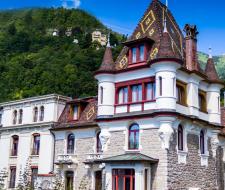 from 4300.00 CHF / 2 weeksApply with documents
from 4300.00 CHF / 2 weeksApply with documents -
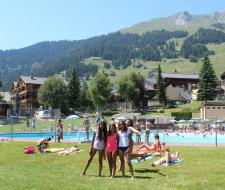 from 4290.00 CHF / 2 weeksApply with documents
from 4290.00 CHF / 2 weeksApply with documents -
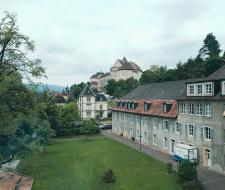 The school helps with admission to public universities in Switzerland
The school helps with admission to public universities in Switzerland SwitzerlandBaselCurrently watching: 10from 73000.00 CHF / yearApply with documents
SwitzerlandBaselCurrently watching: 10from 73000.00 CHF / yearApply with documents -
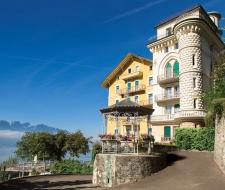 One of the best only-girl school in Europe
One of the best only-girl school in Europe SwitzerlandMontreuxCurrently watching: 9from 82500.00 CHF / yearApply with documents
SwitzerlandMontreuxCurrently watching: 9from 82500.00 CHF / yearApply with documents
Alternative destinations
Education information
Today, many foreign students dream about studying in one of the most prestigious European countries - Switzerland. SMAPSE offers the TOP-100 private and boarding schools in Switzerland where students from all over the world can take advanced courses and studying programs. Secondary education in Switzerland is considered to be one of the most prestigious in the world and is characterized by an impeccably high quality – education in Switzerland has long been considered a synonym for quality, reliability, huge prospective, and respectability.
Education in Switzerland combines modern educational standards and centuries-old traditions of education in Europe (traditions of educational systems of Germany, Austria, Italy, France, England, the USA). Foreign students can study in elite schools in Switzerland, which educate the so-called "citizens of the world", and at the same time provide an individual and versatile approach to each student.
Studies in Switzerland can begin at any age - the most rational option is to study in a private boarding school in Switzerland: for the graduates of such institutions, doors of the most prestigious and top-ranked colleges, higher schools, and universities of the world are open. Swiss traditions in education allow schools to bring up in foreign students purposefulness and leadership qualities, which helps the formation of young specialists.
Studying in Switzerland after 11th grade opens doors of prestigious universities in the world for foreign students, thus ensuring him a successful career in any country of the world.
In addition, Switzerland is a country that was one of the first to introduce exchange programs for foreign students. Today every third student who studies here came from another country.
The admission and enrollment services in Swiss schools and universities from SMAPSE experts are free of charge for international students. We are not intermediaries, also we can help to get discounts and academic scholarships in case of excellent student’s academic performance. Samples of entrance tests to private schools in Switzerland are presented in the SMAPSE centre.
Key Features of Studying in Switzerland
Seasonal language schools in Switzerland have gained popularity among international students. Apart from their academic allure, they offer a mix of entertainment and excursions, often bundled in the overall study in Switzerland fees.
The cost of study in Switzerland, especially in prestigious boarding schools, can be on the higher side. The average yearly fee ranges from 45,000 CHF to 90,000 CHF, which covers tuition, accommodation, and meals. This comprehensive fee also includes trips to language camps during holidays.
Worth noting is that international students don't face different fees from domestic students in Switzerland's top 100 schools. Every student, regardless of their nationality, is treated equally, both in terms of rights and opportunities. This fairness extends to opportunities for scholarships and grants, helping to alleviate some of the financial burdens.

Best Programs to Study in Switzerland
Switzerland offers a wide array of practical courses tailored to international standards, such as:
-
Economics (for high school and middle classes)
-
Business
-
Law
-
Art
-
Design
-
Architecture
-
Music
-
Social sciences
-
Biology
-
Physics
-
Chemistry, and many more.
What languages do you need to know to study in Switzerland?
One distinct characteristic of studying in Switzerland is the linguistic diversity, given that different cantons have different official languages. As a result, international students need a robust command of the chosen language of study, which could be English, French or German. Should students need to brush up on their language skills, numerous institutions in Switzerland offer supplementary language courses to aid them.

The Swiss University Experience
The Swiss approach to higher education emphasizes the balance between theoretical knowledge and practical application. In many institutions, over half of the study time is dedicated to hands-on practice, ensuring students are well-prepared for real-world challenges.
The decision to study in Switzerland at the university level often translates to a brighter career path. Students gain invaluable experience during their internships, and upon graduation, they frequently receive lucrative job offers from leading European and international firms.
How to Apply for a Study Permit in Switzerland?
Before diving into the Swiss education system, international students need to understand the visa and permit requirements. The process may vary based on nationality and duration of stay, so it's essential to research and prepare well in advance to ensure a smooth transition.
In conclusion, Switzerland offers a holistic educational experience, blending rigorous academics with captivating natural beauty. If you're considering an international academic journey, Switzerland should undoubtedly be on your list.

Does each school offer ESL support to international students? How important is it?
No, not every one, but this aspect is really important: you need to support students where they need additional help in adapting and integrating into a new system and culture, in communication. The native language, of course, is also important, it should also be used.
Why Choose to Study Abroad in Switzerland?
Today, discerning parents who recognize the unparalleled value of top-tier education abroad are increasingly opting for Switzerland. These investments in world-class education offer remarkable returns. Parents frequently commend the quality of education, the balanced academic pace, well-organized internships, and recreational activities. They also appreciate the infrastructural benefits of the campus and the mesmerizing natural surroundings it's set in.
Student feedback, accessible on our reviews page, aligns closely with parental sentiments. Beyond acknowledging the infrastructure and quality of amenities, students value the autonomy in decision-making within the curriculum, as well as the avenues for creativity, sports, and other extracurricular activities.
Cost and Fees to Study in Switzerland
Studying in Switzerland's top 100 schools often commands a premium over institutions in England and the US. Fees in the most elite boarding schools can range from 45,000 CHF to 90,000 CHF annually. The relatively high cost is justified by exceptional living standards and personalized attention to each student.
Best Programs to Study in Switzerland: Hospitality & Culinary Arts
Some of Switzerland’s most sought-after higher education programs are in:
-
Hotel and tourism management
-
Business management
-
Catering
-
Culinary arts
Switzerland's impeccable service standards serve as a global benchmark. Consequently, pursuing specialized education here is a logical choice. A standout feature of Switzerland's hotel, restaurant, and tourism education is the integrated, mandatory internships and work experience. Collaborations with top national and international brands allow students to gain hands-on experience in esteemed establishments, covering roles from entry-level to executive management. Many students secure lucrative job offers even before graduation, thanks to these internships.
Several esteemed hospitality schools in Switzerland are housed within expansive hotels, providing students daily practical applications of their theoretical knowledge. Among the highly-regarded institutions are:
Given the prestige associated with Swiss educational institutions, the fees are substantial. However, the high cost of study in Switzerland aligns with the exceptional quality of education. Bachelor's programs typically range from 17,000 CHF to 31,300 CHF per semester. But such investments often yield returns quickly post-graduation, given the strong industry affiliations and rigorous training.
Understanding the Swiss Educational System
Switzerland's education system is jointly overseen by federal and cantonal (regional) authorities. Each Swiss region administers institutions from preschool to initial secondary education stages. The state ensures education accessibility for local residents and upholds the quality standards. Cantons oversee the latter part of secondary education, excluding vocational institutions which are federally regulated.
Certificates from public schools are recognized within Switzerland, while private institutions' credentials have broader acceptance, both domestically and internationally.
Swiss education adheres to the Bologna Agreement, offering both Bachelor and Master programs. Children, both local and international, can begin their education journey in Switzerland as early as ages 4-6, focusing on interactive learning and play.
The Swiss educational ethos emphasizes nurturing each child's uniqueness and fostering a love for learning and exploration. Secondary education is often pursued in premier private schools, known for their high teaching standards, comfortable living conditions, and advanced facilities. These schools also benefit from their scenic locations amidst mountains or lakes.
The Swiss academic year is divided into three trimesters: Autumn (September to mid-December), Spring (mid-January to mid-April), and Summer (end of April to early June).
Parents typically seek Swiss schools for their safety, extracurricular opportunities, travel experiences, and overall campus life. Many appreciate the familial ethos of institutions like Surval, which offers a supportive environment, especially for girls.
Inclusive Education in Switzerland
Switzerland's secondary schools prioritize inclusive education. They are equipped to cater to students with special needs, offering tailor-made curriculums and specialized teaching methodologies. Switzerland’s commitment to inclusivity is evident in its infrastructural provisions and trained professionals catering to differently-abled students.
The nation, being one of Europe's most progressive, ensures that individuals with disabilities receive optimal attention. There are dedicated institutions for students with specific needs, as well as mixed education formats. Expert professionals employ advanced teaching methods, ensuring all students can seamlessly integrate into society and transition into adulthood.
What types of training programs exist in Switzerland?
Can international students enroll in these study programs?
What are the language requirements for studying in Switzerland?
How do study programs in Switzerland contribute to further employment?
What is the duration of study in Switzerland?
What is the cost of studying in Switzerland?
How is the quality of education at private universities in Switzerland assessed?
Are there any online study programs in Switzerland?
Are Swiss programs recognized worldwide?
Statistics of English courses in Switzerland
| Programs | Intensity | Group | Language requirements | The minimum cost of the week (CHF) |
|---|---|---|---|---|
| Standard curses | 15-20 | 6-12 | Beginner | 300+ |
| Intensive courses | 30 | 6-15 | Beginner | 430+ |
| Semi-intensive courses | 25 | 6-15 | Beginner | 380+ |
| Conversation training | 4 | 5-9 | Beginner | 60+ |
| Exam preparation courses | 30 | 6-8 | Intermediate | 530+ |
| Business german courses | 2 | 6-8 | Intermediate | 70+ |
| Courses for professionals | 10-15 | 1-2 | Beginner | 200+ |
| Private lessons | individual | 1-2 | Beginner | 98/les. + |



